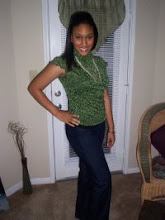Q & A
What’s a typical week like?
It varies, but some of the main things that I do is I have to read news that affects my organization such as RSS feeds. My organization is non-profit, but the board is made of CEOs of major companies. Our focus is statewide, and the main goal is to affect public policy like getting laws passed. We are in the process to get the state budget passed so I have to read all news to follow that issue. I also bring articles to my bosses attention to see if he wants to make a statement – and I have to write a draft and get his approval for the statement. I get requests for interviews from reporters – I am not a primary spokesperson but I coordinate press conferences. Sometimes I respond directly if the subject is not too controversial. We also released the Michigan Turnaround Plan. For this I look at taxes and budget reforms. The main question here is how do I increase awareness of this plan? I do interviews on the radio and write op-eds then send this to boss for reviewing. I then contact publications to get it placed.
Tell me about a project you worked on that you are especially proud of?
The announcement of our new organization and Turnaround Plan- I had to organize the press conference. The message leaked and I was scared I was not going to get anyone at the press conference. I had to figure out what I was going to say and acknowledge what had been said. I had a good turn out and many reporters.
Also, a few years ago I was working for Yavaki North America (automotive supplier) they announced they were closing the plants in GA and Texas. I was involved with engineers and executives with figuring out hwo to relay the message. This was a different audience, including the community, because since the plant was closing the jobs would be gone. This took a month to organize – I was the spokesperson and sent out the press release and responded to the media.
How important is writing in your career?
It is very important; I have to write press releases, op-eds, blogs for our websites, and articles for our newsletter. Sometimes I have to write things I have no idea about(like Yavaki automotives) You have to be able to articulate around the subject you don’t know about and I always do a little research before I write so I really known enough to be able to talk about it. The writing has to be at a certain level or else the executive will chew u apart.
What three tips would you offer someone just starting out in PR?
1. You have to understand what everyone needs. For example, what does the journalist need? They are going out of business and you need to be able to help them do their job the best. What do your clients need? Be aware to balance client’s needs and executives needs.
2. You cannot go into it thinking you know it all. Be prepared to learn and be humble and have a positive attitude. You are going to have to multi-task and not everyone is going to like what you write.
3. Perfect a skill that makes you stand out from others. (Such as social media)
What do you do to keep current in the PR industry?
Social media, I am a member of PRSA (I read their publications), search online to see what’s new in my area, recently read some books on twitter.
What do you wish you would have known before starting your career in PR?
I wish I would have known the politics between reporters and executives and between different publications. If u give exclusive story to one newspaper, you might get nasty messages from others. There was also a time when a reporter called to find out about our budget and where we collected the money from. I have to check with my boss before I release information like this. He said he did not want to be on record saying where the money came from so do not tell them. Because our budget is public information the reported was angry that I would not just share the information.
What has surprised you the most about working in PR?
It really is about relationship building with reporters, clients, and executives. You have to be able to connect with people, not just be a good writer or a good speaker.
Have you worked with people and found out that PR is not for them?
A woman I once worked with was English major. She did not deal well with the clients or journalists when they would get testy. I recently found out she has a completely different job at another company.
When your company is hiring for an entry-level PR position, what makes a candidate stand out?
What they are looking for is a variety of experience and ability to multi-task and work well with others. Writing is very important. I am the only PR person in the company but I do remember that in addition to giving writing samples at the interview sometimes they will ask to write a press release or a short communication plan giving you three hours.
After interviewing this person I am less likely to want a career in PR because of the politics aspect. I do not like to displease people and that is the nature of the job at some points, especially when dealing with reporters. But I am more likely to want a career in PR because I connect well with people and would love to build lasting relationships in this line of work.



No comments:
Post a Comment